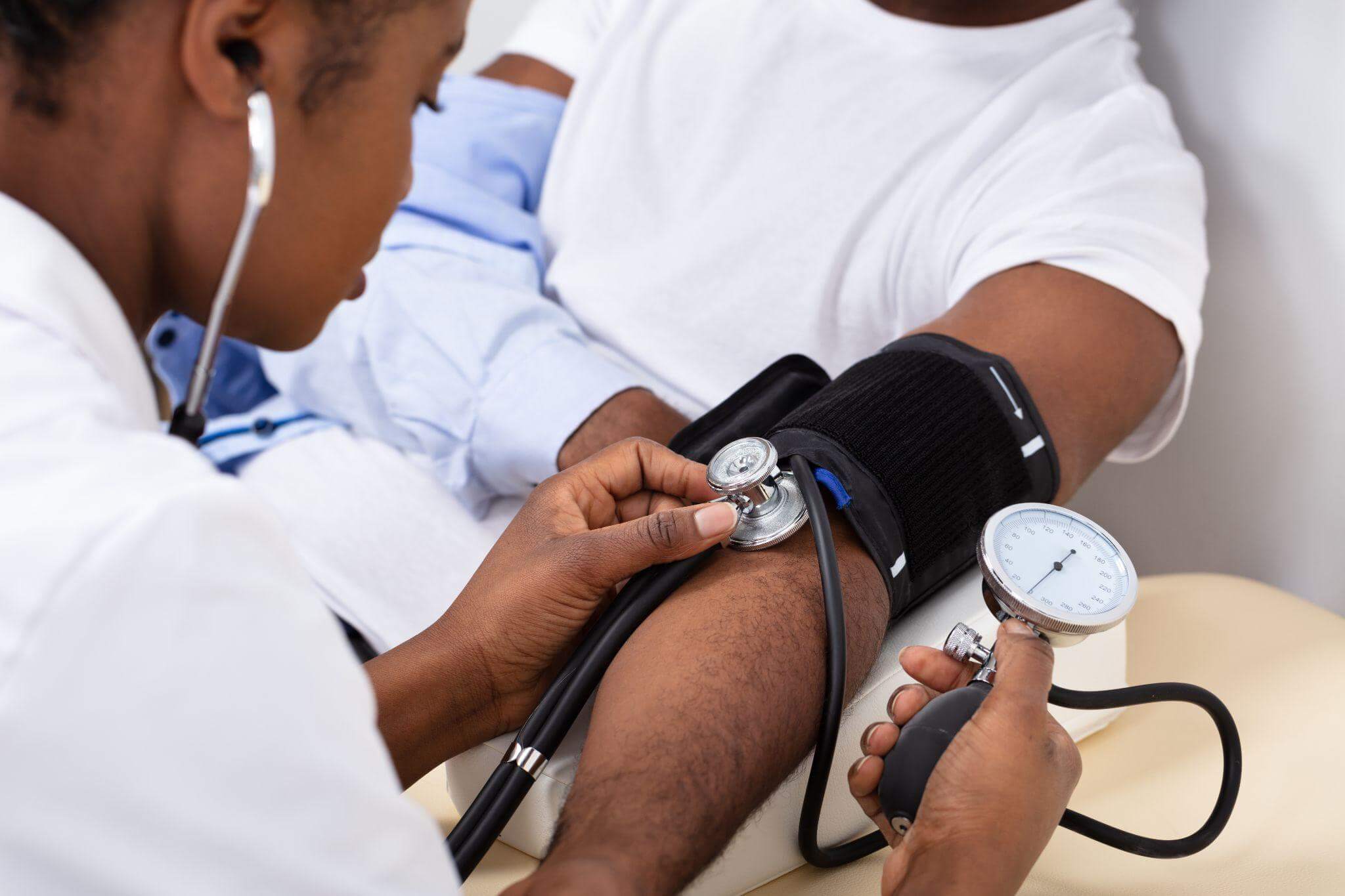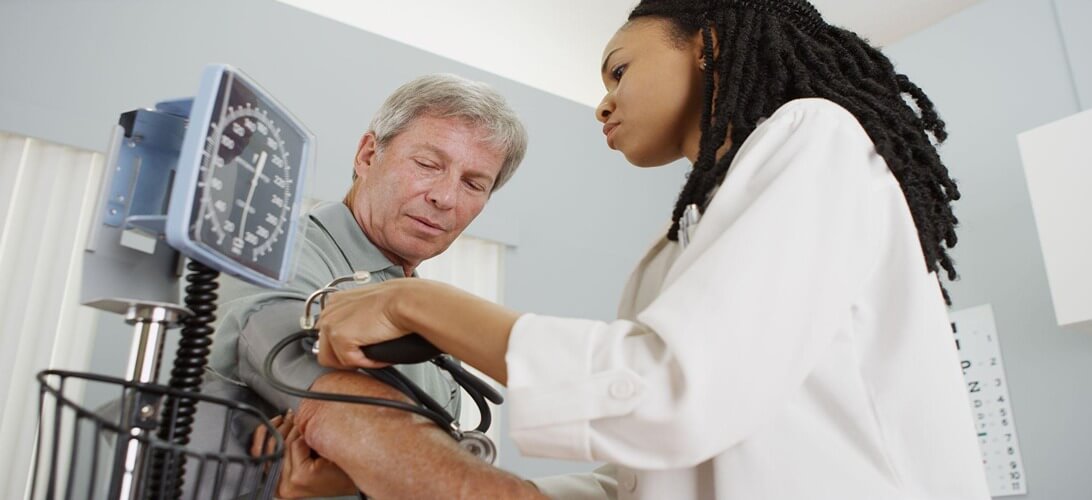Highlights
- Hypotension, or low blood pressure, is common, but it can be a major medical concern in some circumstances.
- Several factors can contribute to hypotension, such as age and certain chronic conditions.
- Hypotension can be managed with medication and lifestyle changes.
While high blood pressure (hypertension) is much better known, low blood pressure, or hypotension, can be just as complicated to manage and live with. Be informed about its symptoms, how it’s caused, and how to treat it so you can spot and manage hypotension.
What Is Hypotension?
Hypotension is generally defined as blood pressure under 90 millimeters of mercury (mmHg) when your heart pumps blood out to arteries (systolic pressure) or 60 mmHg when the heart fills with blood (diastolic pressure). This is not an exact definition; everyone’s body is different and hypotension is diagnosed differently from one individual to another. Because of its dual definition, it’s common to have both hypertension and hypotension.
There are several types of hypotension that affect different groups:
- Orthostatic. After lying down or sitting for a long time, you might feel faint standing up. This is due to a sudden drop in blood pressure due to changing positions. Orthostatic hypotension is most common among adults over 45.
- Postprandial. Most common in older adults, particularly if they have hypertension or diseases affecting the nervous system, this is when blood pressure drops one to two hours after a meal.
- Neurally mediated. Most common in younger people, this is a drop in blood pressure after standing for a long time, believed to be caused by miscommunication between the heart and brain.
- Multiple system atrophy. Formerly called Shy-Drager Syndrome, this is a rare disorder affecting the involuntary functions of the nervous system.
Hypotension Symptoms

Hypotension doesn’t always have symptoms, but many people will experience one or more of the following:
- Dizziness or lightheadedness
- Blurry or faint vision
- Fainting
- Fatigue
- Problems concentrating
- Nausea
An extreme drop in blood pressure is better known as shock. If you’re in shock, your organs aren’t getting needed oxygen and nutrients due to limited blood flow.
If you observe any of these symptoms in yourself or others, call a doctor immediately:
- Confusion
- Pallor, a draining of color from the skin
- Skin that feels cold or clammy
- Quick and shallow breaths
- Rapid and weak pulse
Hypotension Causes
There are a number of factors that can affect your blood pressure, right down to the time of day. Some common causes of sudden changes are:
- Change in position. Going from lying down or sitting to standing can cause blood to suddenly drop to your feet.
- Breathing. Hyperventilation can drive down blood pressure by constricting blood vessels, especially in the brain.
- Dehydration. Even mild dehydration can reduce blood pressure. As the body filters and recirculates the blood, water is lost, resulting in less blood volume.
- Carbohydrate-heavy meals. As the body scrambles to manage carbohydrates and break them down, blood pressure can drop.
- Medications. A number of medications, such as vasodilators or erectile dysfunction medications, can cause a sudden drop in blood pressure.
Hypotension Risk Factors

While anybody can experience hypotension, there are a few factors that can make it more likely.
- Age. Adults older than 65 are more likely to experience certain forms of hypotension.
- Medications. Hypotension is a risk with some medications. Closely monitor drugs that might interact and take action quickly if you think your blood pressure is dropping.
- Disease. Diseases like diabetes, heart disease, and Parkinson’s disease can interfere with the regulation of blood pressure.
- Poor diet. A diet low in nutrients that the body needs to make red blood cells, such as B-12, iron, and folic acid, can cause blood pressure to drop.
Hypotension Diagnosis
Hypotension is usually diagnosed with a blood pressure test. The exact cause can often be narrowed down with blood or urine tests.
If you’re experiencing fainting or dizziness when you stand up, ask for a tilt table test. This is just what it sounds like: You will be strapped to a table and then tilted to mimic various body positions.
Hypotension Complications
Complications from hypotension will depend on the cause and the treatment course. Before starting any new treatment, ask your doctor for a detailed list of potential complications.
Hypotension Treatment

In many cases, treatment isn’t necessary for isolated cases of hypotension. For a consistent problem, your doctor might recommend one of these treatment options:
- Recognition. Spotting incidents of hypotension can be difficult if you’re not looking for them. Knowing when you experience symptoms and being able to determine if it’s your blood pressure that’s the problem is the first step in management.
- Medication management. If your hypotension is due to your medications, ask your provider about switching medications or changing dosages.
- Position training. If dizziness due to position changes is a common problem, a physiotherapist can help you learn a different way to stand to give your body time to catch up.
- Compression garments. Because hypotension with positional changes is due to blood pooling in your lower body, compression garments can help. They limit how much blood can drop and keep your circulatory system in balance.
Hypotension Prevention
No matter what the type of hypotension you have, there are several ways to mitigate it.
- Hydration. Stick to a hydration schedule. You need to drink enough water to prevent dehydration and keep blood volume consistent.
- Diet. A diet high in the building blocks of red blood cells increases blood volume and reduces the chances of going into shock. Increasing your sodium intake may also help, but check with your doctor first.
- Regular exercise. Light exercise, at least thirty minutes a day, will help your circulatory system and offer overall health benefits.
- Limiting or eliminating alcohol. Alcohol dehydrates and interferes with blood pressure, even when used in moderation.
Get the Lowest Price for Hypotension Medications
If you’re treating your hypotension, or conditions causing it, with medication, BidRx can help you find the lowest prices for them. With BidRx, you submit a bid and pharmacies across the country compete to give you their best price. You choose the bid that works for you, and your prescriptions are shipped to your door.
See how it works by visiting our medication page to get started.
